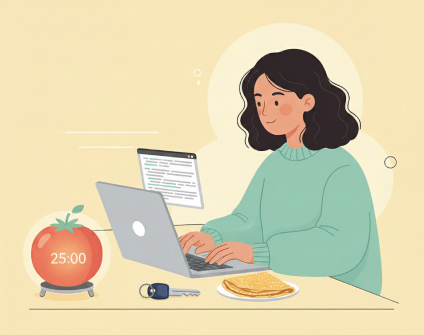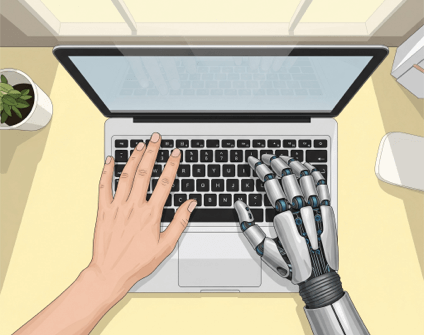Ever feel exhausted at the end of the day but can’t quite pinpoint why? You finished your work, did your chores, and yet, there’s this lingering sense of being drained. The culprit? Invisible tasks—the unseen mental work that quietly weighs on you every day.
What Are Invisible Tasks?
Invisible tasks are all the small, behind-the-scenes responsibilities that keep everything running smoothly. They aren’t on to-do lists, yet they demand attention. They include:
- Planning meals before grocery shopping
- Remembering birthdays and buying gifts
- Keeping track of bills and appointments
- Noticing when household supplies run low
- Managing emotions in relationships and workplaces
These micro-responsibilities add up, creating a mental load that can lead to burnout, especially when unrecognized.

The Weight of Emotional Responsibility
Emotional work is one of the heaviest invisible tasks, often overlooked but deeply draining. It involves managing both your own emotions and the emotions of others, offering support, and maintaining social harmony. This burden often goes unrecognized in both work and personal life.
For example, a manager checks in on a stressed employee, a parent manages a child’s anxieties while juggling their own responsibilities, or a partner mediates conflicts before they escalate. These tasks are mentally exhausting, yet seldom acknowledged.
The constant emotional effort can lead to stress, burnout, and decision fatigue, leaving individuals mentally drained and overwhelmed. This unseen burden can have a significant impact on mental health, highlighting the need for better recognition and shared responsibility.
How Unseen Tasks Sabotage Your Productivity
Unseen tasks, though small, can overload your brain and reduce cognitive capacity. When your mind is constantly occupied with minor details—like remembering appointments or managing emotions—it struggles to focus on deeper work. This mental clutter leads to:
- Decreased efficiency: Juggling multiple small tasks makes it harder to complete larger, more meaningful work. Constant task-switching disrupts focus, leading to slower progress and more mistakes. Instead of making real progress, you may find yourself busy but unproductive.
- Higher stress: The accumulation of unrecognized tasks adds pressure over time. When responsibilities aren’t clearly defined or evenly distributed, they pile up, creating a persistent sense of overwhelm. This can lead to irritability, exhaustion, and burnout.
- Lack of mental clarity: When your brain is overloaded with small, nagging details, it’s harder to think strategically or make sound decisions. You may feel like you’re constantly reacting rather than proactively managing your workload, making it difficult to stay organized.
- Decision fatigue: Each unnoticed task demands a choice—whether to do it, delegate it, or postpone it. Over time, these seemingly minor choices drain mental energy, making even simple decisions feel exhausting. This can lead to procrastination, impulsive choices, or avoidance of important tasks altogether.
These hidden tasks chip away at your productivity, making it harder to focus on what really matters. Recognizing and managing them can help restore your mental clarity and efficiency.

Simple Strategies to Reduce Hidden Tasks
1. Make the Invisible Visible
Start by writing down all the “small” things you do that drain mental energy. Seeing them listed makes them real—and easier to manage or delegate. Use a journal, a note-taking app, or even a whiteboard. Once these tasks are out of your head and into a visual format, it’s easier to track patterns and find solutions. Recognizing your unseen efforts is the first step in reducing mental fatigue.
2. Share the Load
If you’re in a household or team, talk about mental tasks. Delegate fairly and set clear expectations. Here’s how:
- Use a shared digital calendar: Instead of one person tracking bills, set up automated reminders for everyone.
- Divide planning and execution: One person makes the grocery list, while the other shops.
- Rotate emotional support roles: Instead of one person always mediating or checking in on others, set up a system where emotional labor is shared.
- Establish accountability: Make sure each person follows through on their assigned responsibilities to avoid one person bearing the burden.
3. Use Technology to Offload Tasks
A smart way to reduce mental load is by automating and tracking tasks with productivity tools. Digital planners and task management apps can simplify responsibility tracking and reduce stress. Here’s how it can ease your mental load:
- Shared Planning: Assign tasks to family or team members so responsibilities aren’t one-sided.
- Automated Reminders: Never worry about forgotten deadlines, birthdays, or bills.
- Priority and Status Tracking: Prioritizes your tasks and provides clear updates, reducing decision fatigue and keeping everything structured.

4. Practice Mental Decluttering
Schedule “brain dumps” where you offload all thoughts onto paper or a digital planner. This helps clear mental clutter and reduces stress.
- Daily or weekly brain dumps: Set aside time to jot down all your thoughts, tasks, and worries. This prevents overthinking and allows you to see what’s truly important.
- Categorize and prioritize: Once your thoughts are written down, separate them into urgent, important, and non-essential tasks to create a structured plan.
5. Set Boundaries for Emotional Labor
- Learn to say no: You don’t have to be the default emotional caretaker. Set clear emotional boundaries, whether in personal relationships or the workplace.
- Communicate expectations: Let others know when you’re available for support and when you need your own space.
- Encourage independence: If people rely on you for emotional labor, guide them to manage their own emotions and decision-making.
- Prioritize self-care: Just as you support others, ensure you allocate time to recharge and take care of yourself.
Invisible tasks won’t disappear, but acknowledging and managing them can significantly reduce their impact on your mental and emotional well-being. By making these tasks visible, sharing the responsibility, and leveraging smart tools, you can lighten your mental load and reclaim your energy.




